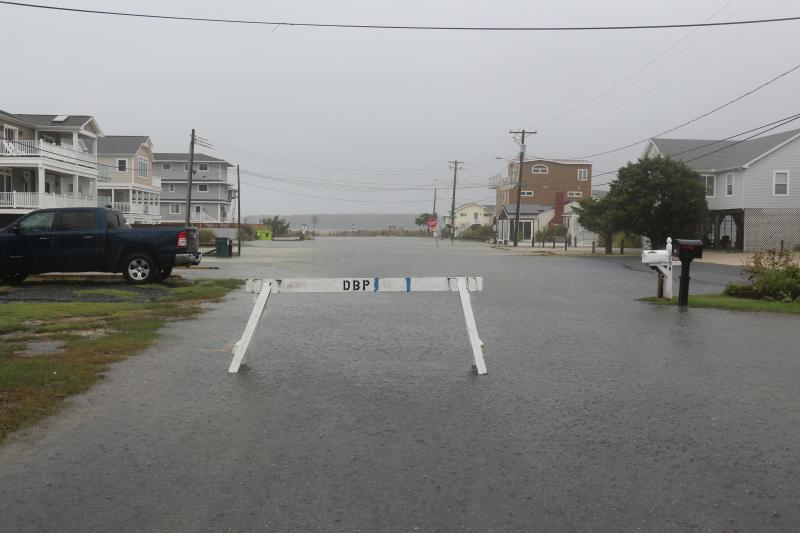Dewey leaders consider resiliency fund
At their monthly meeting Sept. 20, Dewey Beach commissioners initialized talks on the implementation and use of a resiliency fund to address impacts of major storms.
The suggestion arose from the climate change committee, said Commissioner Gary Persinger, who noted the town has seen more flooding, especially on the bay side, with Read Avenue continually seeing the worst of it.
In March 2023, the climate change committee worked with Philip Barnes of the Biden School of Public Policy and Administration to identify resiliency strategies to recommend to town council for approval. The researchers also guided Lewes officials in a similar exercise, Persinger said.
The fund would be used to prevent or mitigate property damage or loss and address economic impacts from storm activity, said Persinger, adding the town has been lucky to escape a major hurricane thus far.
“That’s not to say we won’t be so lucky in the future,” Persinger said.
There is local precedent for this type of fund, he said, noting Bethany Beach has a storm emergency relief fund for the cleanup and repair of infrastructure, replacement of equipment and other town-owned property if needed after a significant weather event. It is funded by a portion of the residential and commercial rental tax, hotel rental tax, property tax and parking revenue, he said.
The climate change committee suggested the fund could be a dedicated tax or a specific set-aside, Persinger said. Specific uses could be defined within the current rainy day fund, he said, or they could modify the beach assessment, which is marked solely for replenishment on the ocean beach.
The resiliency fund could be used toward research into understanding the limits of the problem and what a small municipality can do to plan for storms, and even for matching grant opportunities, Persinger said.
Half of the hotel tax currently goes to the capital improvement fund for the new town hall, he said; part of that income could go to resiliency after town hall is built. It’s also important to see how the fund would connect with town participation in the Sussex County Hazard Mitigation Plan, he said, noting commissioners need guidance.
Mayor Bill Stevens said he wants to make clear the fund would not be used for residential loans after a storm; it would be directed toward rebuilding infrastructure so town business can resume.
The rainy day fund is to a degree a resiliency fund, Stevens said, noting the need to examine capital expenditures and the value of fixed assets in addition to discussing the use of rainy day and resiliency funds.
Commissioner David Jasinski suggested waiting until town hall is constructed so account balances are more clear. It’s good to plan, he said, but major changes should wait. The town also doesn’t know what role it would take in coordination with state and federal officials in the event of a major disaster, he said.
A new tax would require a referendum, said Commissioner Paul Bauer, who said the beach replenishment tax could be increased, with partial income marked for resiliency, or a separate fund could be created.
Commissioner Elisabeth Gibbings said commissioners should continue to assess the feasibility of a resiliency fund, without making budget changes, while simultaneously moving forward with the town hall build.
In the meantime, Stevens said he would call the Lewes and Bethany Beach mayors for advice, and suggested the climate change committee could begin identifying consultants to develop scenario planning and provide advice on building a resiliency fund.

















































